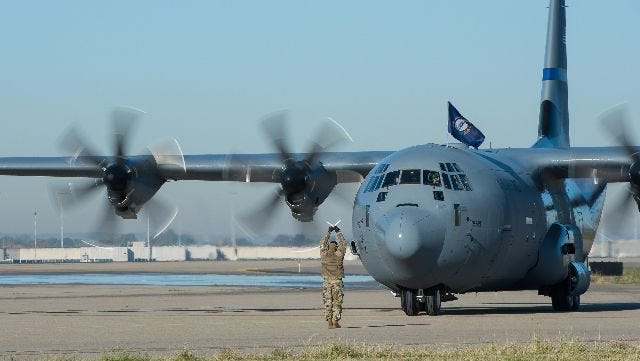US Occupation of Syria
At least six United States military C-17 and C-130 transport planes delivered soldiers, air defense systems, and weapons to the Kharab al-Jir Airbase and the Rumalyn Landing Zone.
Six C-17s, C-130s deploy US military assets to Northeastern Syria
In a major move underscoring the gravity of America’s strategic interests in the Middle East, U.S. military assets have been relocated to northeastern Syria in recent days, with at least six C-17 and C-130 military transport planes delivering soldiers, air defense systems, and weapons to t…





